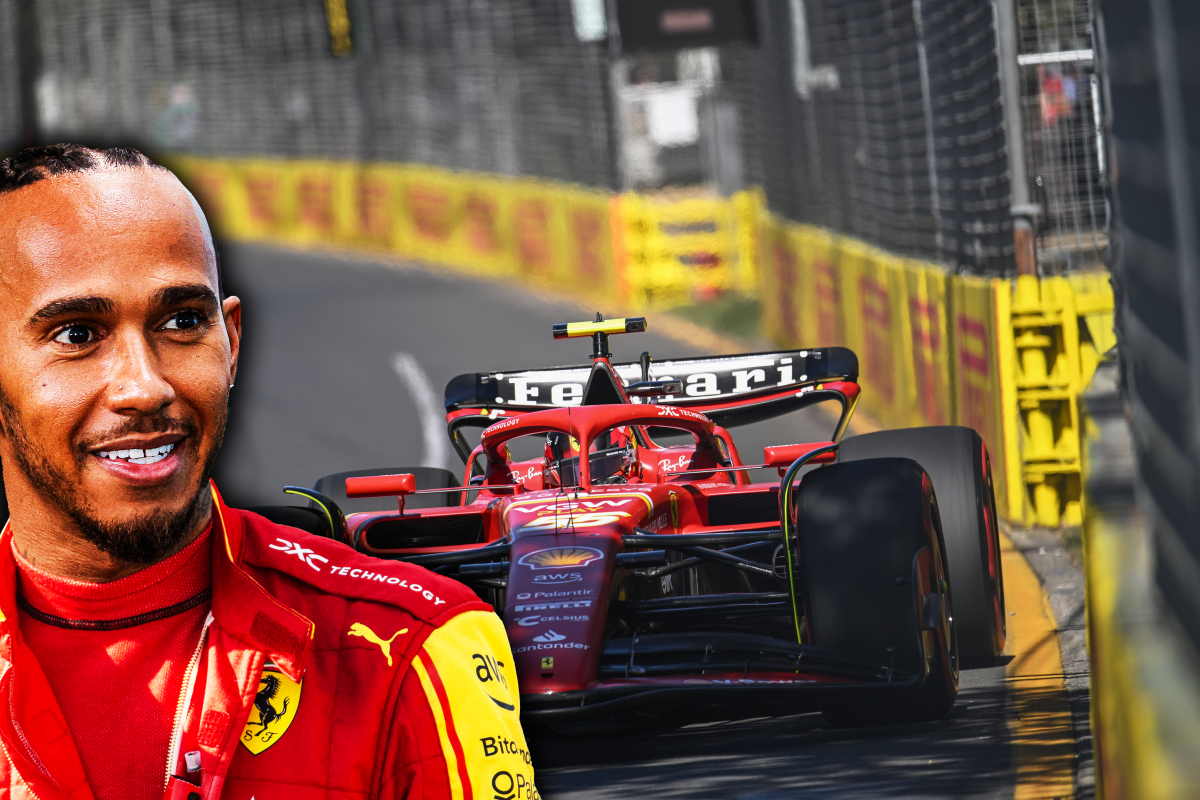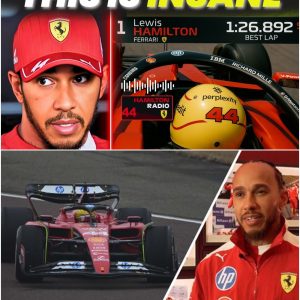For nearly two decades, Ferrari has been stuck in a cycle of near-misses and failed championship bids.
Despite being the most storied team in Formula 1 history, with legendary status and passionate global support, Ferrari’s recent past tells a different story—one of struggle, inconsistency, and underperformance.
But now, a new chapter is being written—by none other than Lewis Hamilton.
The seven-time world champion, who dominated the turbo-hybrid era with Mercedes, is taking on the most ambitious challenge of his career: bringing Ferrari back to the top.
From Legacy to Lull: Ferrari’s Fall from Grace
Ferrari’s last Drivers’ Championship came in 2007 with Kimi Räikkönen. It was a nail-biting season that saw the Finn snatch the title from McLaren’s Lewis Hamilton and Fernando Alonso by a single point. While Räikkönen benefited from internal chaos at McLaren and a late-season resurgence, Ferrari hasn’t tasted championship glory since.
Prior to Räikkönen, Michael Schumacher redefined dominance with five consecutive titles from 2000 to 2004, aided by a completely overhauled team built by Jean Todt. Before Schumacher, however, Ferrari’s last title was in 1979 with Jody Scheckter. Despite Ferrari’s unmatched prestige, their modern record tells a tale of chronic underachievement.
It is this dichotomy—legacy versus results—that Hamilton aims to reconcile.
Hamilton’s Bold Move
Hamilton’s decision to leave Mercedes, where he won six world titles, stunned the F1 world. At 40 years old by the time the 2026 season starts, many questioned whether this was a farewell tour in red or a genuine title bid.
But Hamilton isn’t here for sentiment. He’s here to win.
“I see a huge amount of potential within this team,” Hamilton said ahead of the 2025 Belgian Grand Prix. “The passion, nothing comes close to that… but not all of the moving parts are firing on all cylinders.”
That’s a frank assessment of Ferrari—one only someone with Hamilton’s pedigree could get away with. He’s not just joining Ferrari; he’s trying to rebuild it.

Doing What Alonso and Vettel Couldn’t
Hamilton follows in the footsteps of Fernando Alonso and Sebastian Vettel—both former world champions who arrived at Ferrari with hopes of repeating Schumacher’s success. Both fell short.
Alonso came closest, nearly winning in 2010 and 2012 but ultimately falling victim to Red Bull’s dominance and strategic missteps. Vettel had flashes of brilliance but was often undone by driver errors and a car that couldn’t match Mercedes.
Hamilton is adamant that his story will be different.
“For me, I refuse for that to be the case with me,” he said, referencing the failure of past champions at Ferrari. Since Räikkönen’s 2007 triumph, Ferrari has had a world champion behind the wheel in all but four seasons. That statistic is damning evidence that success in F1 is never just about the driver—it’s about the system.
Hamilton’s Internal Revolution
Unlike his predecessors, Hamilton isn’t content to just drive. He’s already begun compiling reports and assessments of Ferrari’s operations, car performance, and structural inefficiencies. In meetings with Ferrari chairman John Elkann, CEO Benedetto Vigna, and team principal Fred Vasseur, Hamilton has laid out a blueprint for revival.
He’s rattling cages—and Ferrari might finally need that.
“I feel it’s my job to challenge absolutely every area,” he said. “Particularly the guys at the top making the decisions.” With unparalleled experience from McLaren and Mercedes, Hamilton is trying to export a winning culture to Maranello.
This is no ordinary driver signing; this is a takeover.

The Ferrari Ego Problem
Ferrari is known for its internal politics and big personalities. Over the years, countless team bosses, engineers, and executives have vied for control, often creating more noise than solutions. It’s an organization built on tradition, but sometimes burdened by it.
That’s what makes Hamilton’s challenge so bold. For a team that has often resisted outside influence, his willingness to challenge the status quo could be met with resistance.
But as the sport’s most successful driver, Hamilton has earned the authority to push boundaries. His partnership with Elkann may prove vital in bypassing middle management resistance and implementing meaningful change.
Early Upgrades, Mixed Results
Ferrari’s 2024 campaign has been winless so far, though there is a glimmer of hope. A new suspension upgrade, long in development, is being introduced at the Belgian Grand Prix. It aims to address issues with car setup flexibility and excessive plank wear that forced the team to run higher ride heights, compromising pace.
Hamilton has welcomed the upgrade but expressed caution: “On the simulator, there’s no difference… but I’m sure across different circuits there’ll be benefits.”
This cautious optimism underscores a deeper issue. Unlike Red Bull or Mercedes, who bring constant minor upgrades, Ferrari tends to deliver larger, sporadic updates. Hamilton noted the delay between the upgraded floor in Bahrain and the next package in Austria as a missed opportunity for consistent progress.
“It’s good to see development,” Hamilton said. “There are a lot of changes, but to see the results of those changes takes time.”
Crunch Time: Can Ferrari Deliver?
Ferrari is now at a crossroads. They have a proven champion, a team of passionate engineers, and the financial and political capital to compete. What they need is cohesion, focus, and above all—accountability.
Hamilton knows time is not on his side. He’s banking on 2026, when the new power unit regulations come into effect, to be Ferrari’s renaissance. But that means the groundwork must be laid now, in 2024 and 2025.
“If you take the same path all the time, you get the same results,” he said. It’s a clear warning that radical change is necessary—and fast.
The Verdict: Can Hamilton Succeed Where Others Failed?
Whether Hamilton can succeed at Ferrari is still unknown. What is clear, though, is that he is doing more than anyone before him to change the team from the inside out. He’s not afraid to challenge senior figures, critique design choices, or question the factory’s direction.
And maybe that’s exactly what Ferrari needs.
Hamilton brings more than talent. He brings expectation, excellence, and experience at the very top. If Ferrari can overcome its internal politics and follow his lead, there’s a genuine chance they could end their 20-year championship drought.
But the clock is ticking—and Formula 1 waits for no one.
Full Video:






